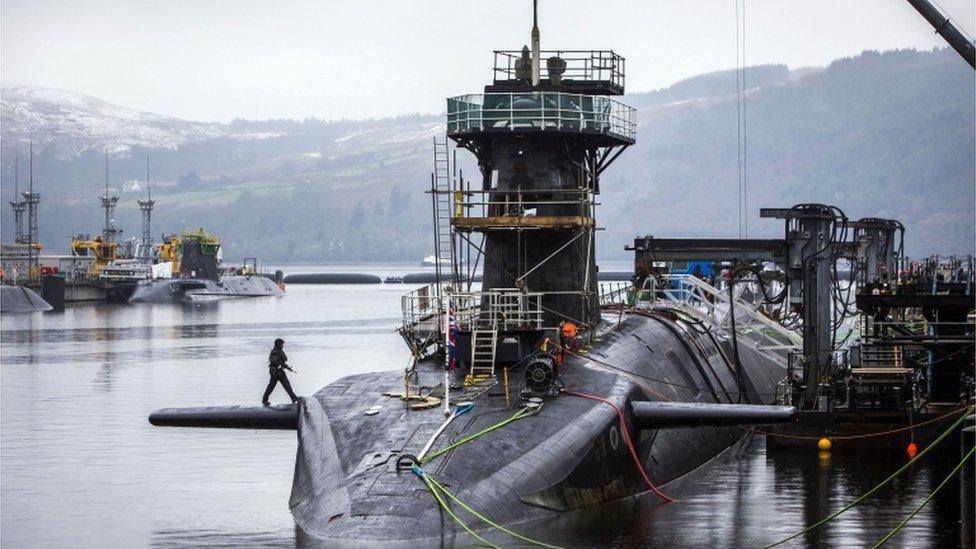New nuclear submarine given famous naval name
- Published
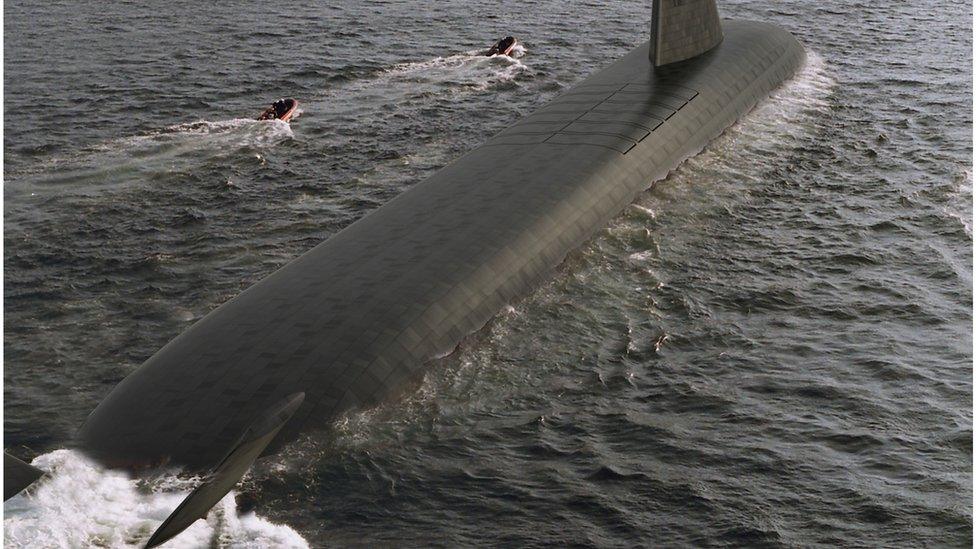
The four new submarines will be built in Britain
The first of four new UK submarines to carry Trident nuclear missiles will be named Dreadnought, a decision inspired by famous ships from the past.
The Ministry of Defence revealed the name, to coincide with Trafalgar Day, for the first vessel of the £31bn project to replace existing submarines.
The MoD said nine Navy vessels had previously been named Dreadnought.
Perhaps the most famous was HMS Dreadnought, commissioned in 1906, which transformed naval warfare.
The name became used at the time to describe a new era of warship design.
Other Dreadnoughts included one that sailed with Sir Francis Drake to battle the Spanish Armada in 1588, and another that was present with Vice-Admiral Horatio Nelson at the Battle of Trafalgar in 1805.
Britain's first nuclear-powered submarine, launched 56 years ago, also shared the name.
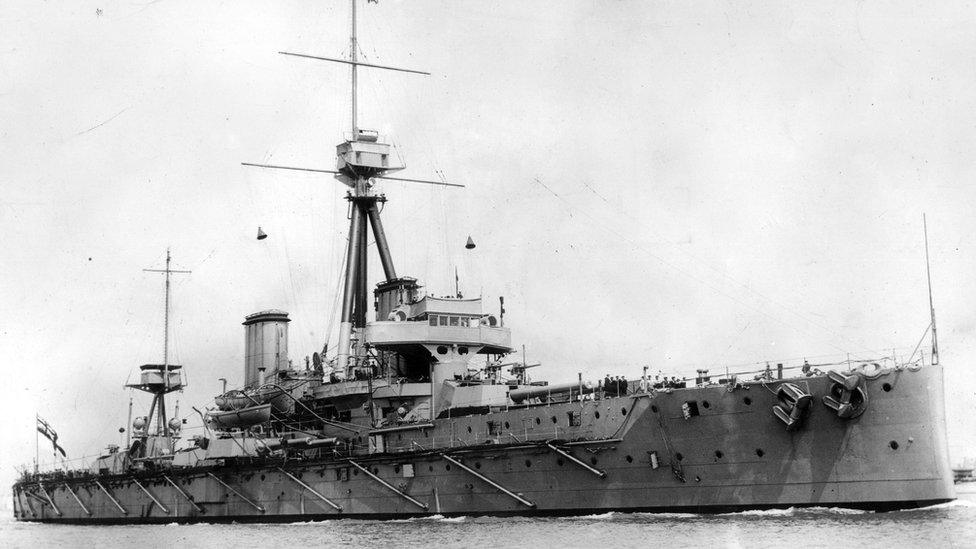
HMS Dreadnought changed the face of naval warfare at the start of the 20th Century
Critics of the project to renew the UK's Trident nuclear weapons system believe the enormous investment could be better spent elsewhere.
But Defence Secretary Michael Fallon said: "Every day our ballistic missile submarines are used to deter the most extreme threats to Britain's security.
"We cannot know what dangers we might face in the 2030s, 2040s and 2050s, so we are building the new Dreadnought class.
"Along with increasing the defence budget to buy new ships, more planes, and armoured vehicles, this commitment shows we will never gamble with our security."
Dreadnought will be the lead boat of the four new submarines, as well as the class name for the whole fleet.
The MoD, which received approval for the name from the Queen, said the next three boats would also be given names with "historical resonance".
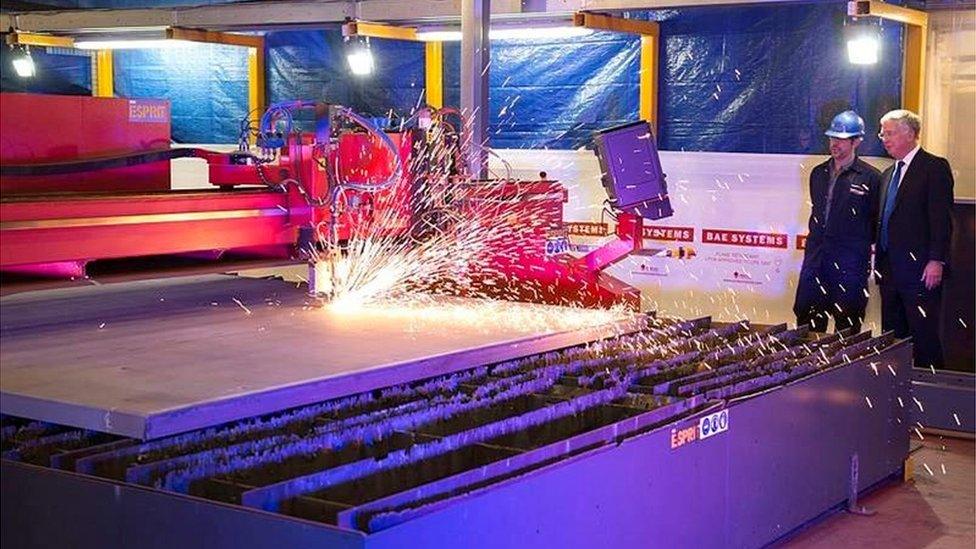
Manufacturing work on the successor programme began last month
But there are still groups fighting against the project who have said the bill will run much higher than predicted.
Dave Webb, chairman of the Campaign for Nuclear Disarmament, said: "Replacing and running Trident is set to cost a staggering £205bn.
"The government dishonestly states Trident will cost between £31bn and £41bn, but that's only the cost of manufacturing four submarines.
"Hundreds of billions for a nuclear weapons system that does nothing to address the real and serious security threats we face - like terrorism and cyberwarfare - but not enough money for schools, hospitals, welfare and jobs. That just doesn't make sense to the majority of the population."
- Published23 May 2017
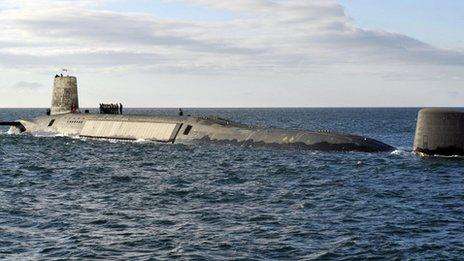
- Published28 May 2013
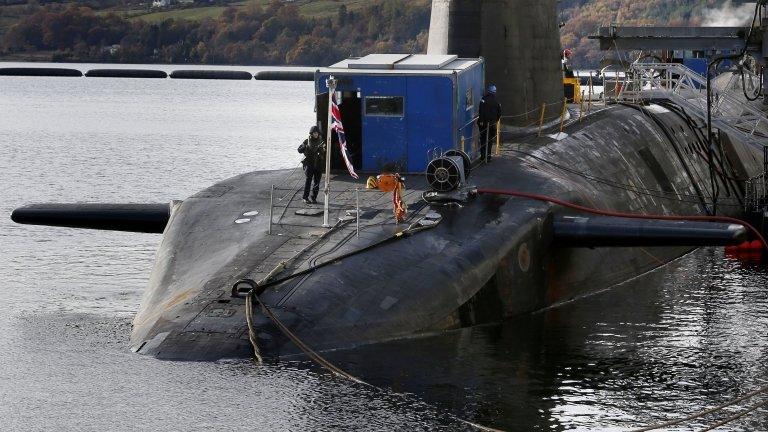
- Published18 July 2016
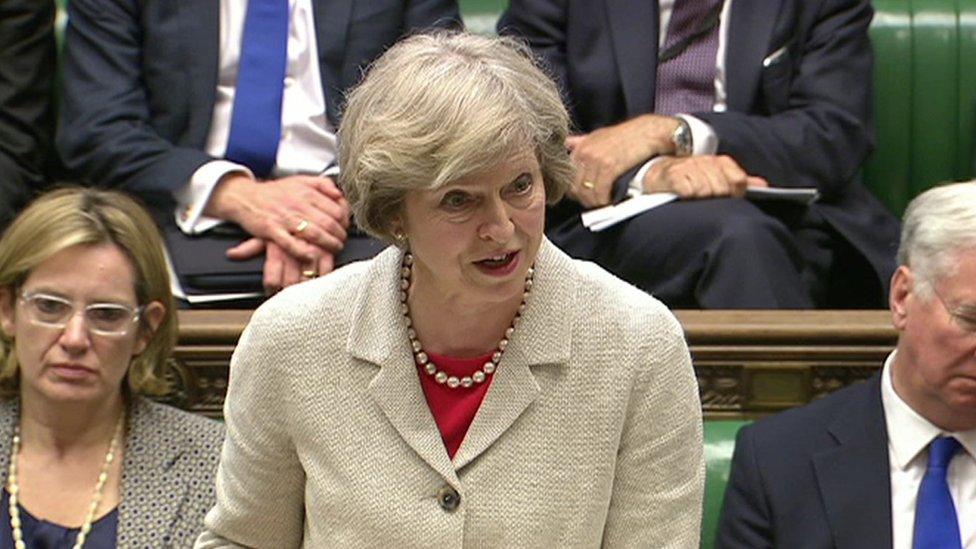
- Published18 July 2016
